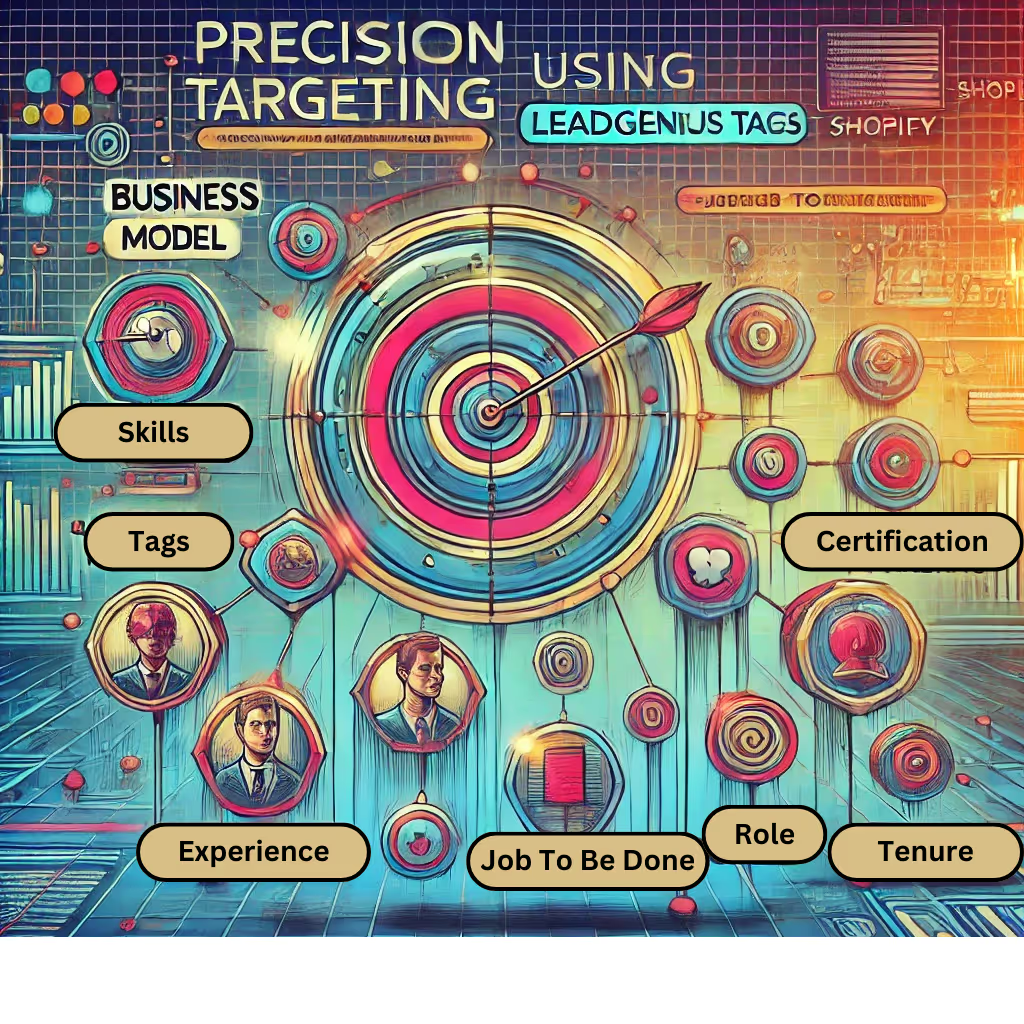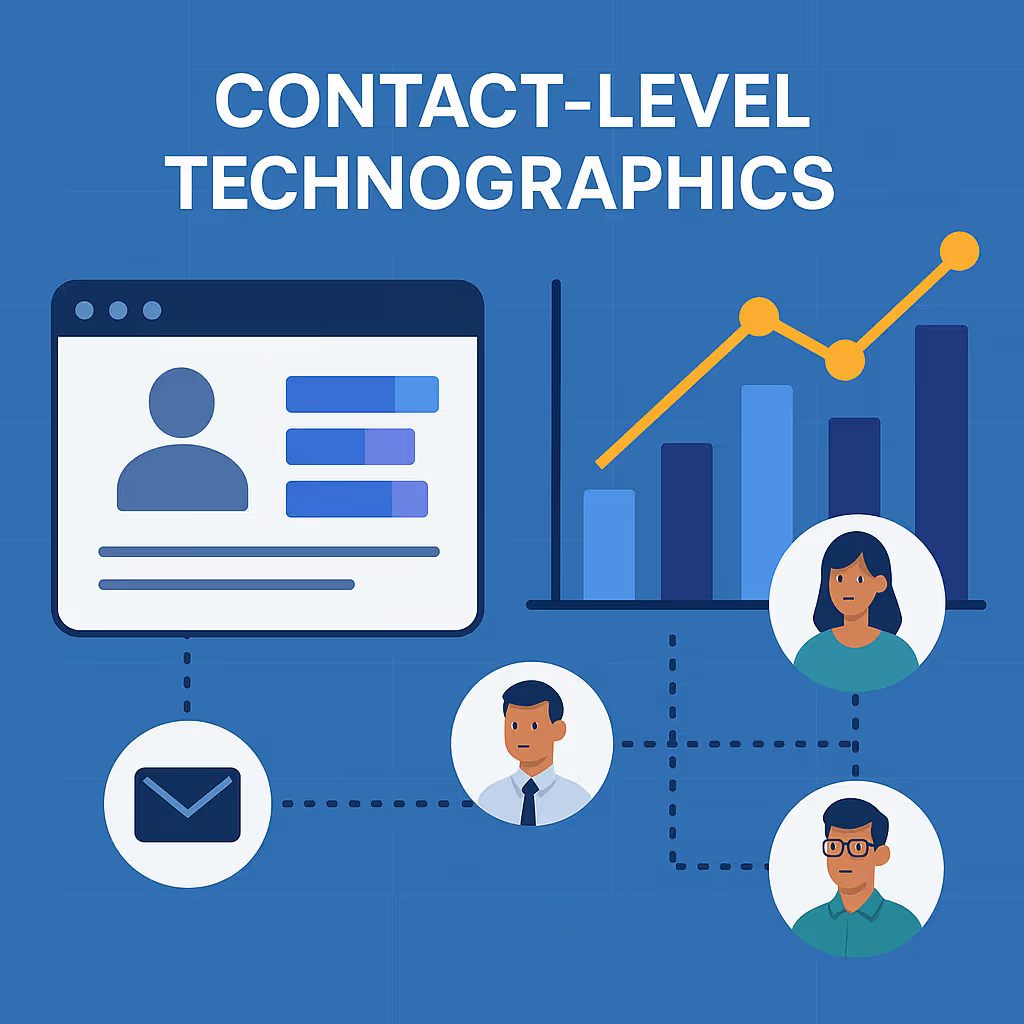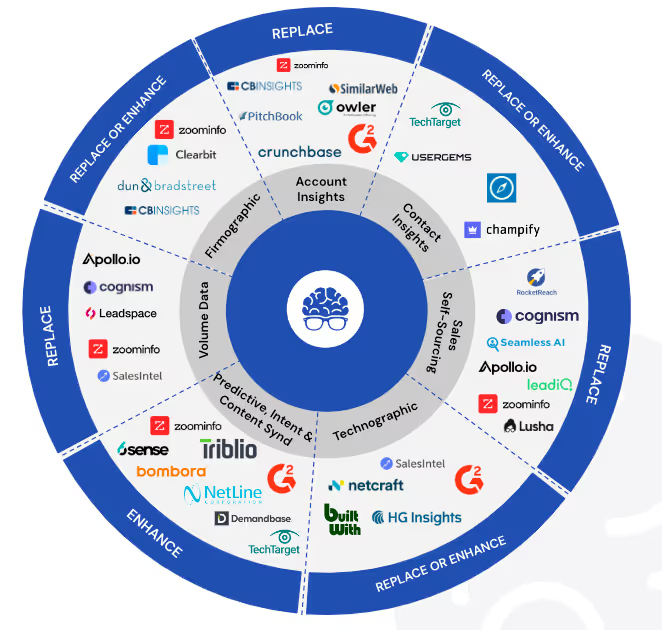For decades, B2B marketers and sales teams have relied on a static and outdated framework to identify and target accounts and contacts: industry codes like SIC and NAICS, generic job titles, and broad categories like those on LinkedIn. These tools were revolutionary in their time, providing the first frameworks for segmentation and targeting in a pre-digital world. But in today’s era of hyper-personalization and precision marketing, they’re no longer fit for purpose.
It’s time we declare these relics of a bygone era officially dead.
The Problem with Industry Codes and Titles
Industry codes like SIC and NAICS are painfully broad. For example, the “e-commerce” category lumps together billion-dollar marketplaces like Amazon, Shopify stores selling niche products, and direct-to-consumer brands running entirely on Instagram ads. Are these businesses really alike? No. Treating them as such is not just lazy—it’s a missed opportunity to create targeted and relevant outreach.
Similarly, job titles have become so ambiguous and overinflated that they’re effectively meaningless. Take "VP at a Bank" as an example. Is this person in charge of compliance, underwriting, digital transformation, or managing a branch office? A title alone doesn’t tell you anything about their role, responsibilities, or purchasing influence.
The same issue arises with roles like “Program Manager” or “Project Manager.” Are they overseeing IT implementation? Running a marketing campaign? Leading a supply chain transformation? Without deeper insight, targeting based on job titles is like throwing darts blindfolded.
Precision Segmentation with LeadGenius Tags
The solution is clear: segmentation must evolve beyond titles and codes to focus on the business model of the account, the job to be done, and the expertise of the contact. This is where LeadGenius Tags shine. Unlike traditional segmentation methods, LeadGenius’s bespoke tagging system dives deep into specific, actionable insights that help you target with precision.
Here are a few examples:
- E-commerce Precision
- Traditional approach: Targeting all companies in the “E-commerce” industry.
- LeadGenius approach: Using tags to identify specific characteristics like
- Channels: Does the company sell on marketplaces (Amazon, Etsy), through social media (Instagram, TikTok), or its own website?
- Products: Are they focused on high-margin luxury goods or commodity items?
- Distribution model: Are they DTC, wholesale, or hybrid?
- Contacts with Expertise
- Traditional approach: Targeting all “Marketing Managers” at e-commerce companies.
- LeadGenius approach: Tagging individuals based on certifications, past roles, and expertise.
- Does this person have certifications in performance marketing?
- Have they worked on omnichannel campaigns in the past?
- What’s their track record with platforms like Shopify or Magento?
- This level of granularity allows ABM teams to tell a more compelling and relevant story, addressing the pain points and opportunities that resonate most with the individual.
Why the "Job to Be Done" Matters
One of the biggest breakthroughs in modern B2B targeting is understanding the "job to be done" within an organization. When you segment accounts based on the specific outcomes they’re trying to achieve, your outreach becomes inherently more relevant and impactful.
For example:
- Banking: Instead of blanketing all VPs at banks, identify which ones are tasked with digital transformation versus branch expansion. The pain points and solutions for these objectives are worlds apart.
- SaaS: Don’t just target "Product Managers." Tag those responsible for implementing APIs versus those focused on UX design.
When you focus on the job to be done, you’re not just selling a product—you’re aligning your value proposition with their goals and challenges.
Why This Matters for ABM and ABX
Account-Based Marketing (ABM) and Account-Based Experience (ABX) are only as good as the data that powers them. Without precision segmentation, your campaigns risk being generic, irrelevant, and ineffective. By adopting LeadGenius Tags, you enable:
- Hyper-Personalized Outreach: Messaging tailored to specific business models, roles, and expertise.
- Improved Efficiency: Reduce wasted spend on irrelevant accounts and contacts.
- Higher Close Rates: When you speak directly to the needs of the account and contact, your odds of closing the deal skyrocket.
Final Thoughts
Traditional industry codes and job titles had their day, but they’ve become a crutch for marketers and sales teams stuck in the past. The future is in bespoke insights, precision segmentation, and understanding the nuanced drivers of business behavior. If you’re still building campaigns based on SIC codes or filtering contacts by title alone, you’re playing a losing game.
LeadGenius Tags offer a path forward—one where you can confidently build targeted campaigns that resonate with the right accounts and the right people. It’s time to leave the old methods behind and embrace a future built on precision, relevance, and results.




